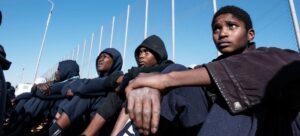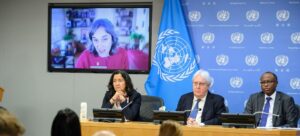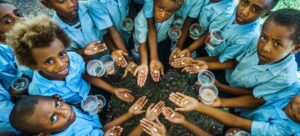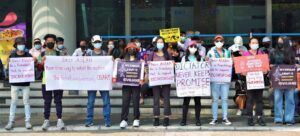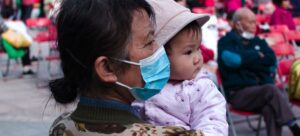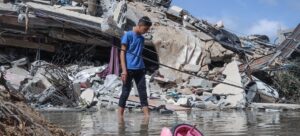The war in Ukraine, has resulted in high food and energy prices, global hunger, and inflation – just one example of the way that crises, affecting millions around the world, including children, affect each other.
The report, “Prospects for Children in 2023: A Global Outlook”, also looks at a range of other significant areas, from the ongoing impact of the COVID-19 pandemic to the fragmentation of the internet, and the climate emergency. Here are eight insights contained within the study.
1) The pandemic casts a long shadow, but health breakthroughs offer hope
The COVID-19 pandemic has highlighted the need for strong global health security and many countries remain at risk. Unfortunately, it is children who are so often the most vulnerable – if not to the virus itself, then to its many impacts.
At the same time, the pandemic has spurred remarkable progress in vaccine development and reforms in global health systems and, in 2023, it is essential the world continues to strengthen health architecture around the world.

2) Efforts at taming inflation have unintended impact on child poverty
Soaring inflation has been the economic story of the year and, unsurprisingly, its impacts can weigh heavily on families and children. Attempts to tame price rises can also have harsh consequences, like slowing economic growth and reducing job opportunities – particularly for young people.
Government action to expand and protect social benefits, cushion the most vulnerable from the impacts of economic austerity.
3) Food and nutrition insecurity is set to continue
Food insecurity has been rising as a result of extreme weather events, bottlenecks in key supply chains, and conflicts like the war in Ukraine.
As prices go up, families across the world find it tougher to feed their children – and that’s likely to continue in 2023.
Making the world’s food systems more resilient, is one way to mitigate this issue.

4) Energy crises cause immediate harm, but a focus on sustainability means a greener future
For billions of people, rising energy prices are sharply increasing the cost of living, and the outlook for 2023 is uncertain.
That outlook has spurred an even greater focus on transitioning to clean and sustainable energy sources, with the potential to create new jobs for young people.
However, many of them don’t feel prepared for these new careers, so preparing young job seekers with training opportunities, needs to be a critical part of any green energy agenda.
5) Focus on climate finance, debt relief for developing countries
Developing countries face multiple challenges as they attempt to recover from the pandemic, address the climate crisis, and deal with economic stress, but financial support for these countries is not increasing to meet their escalating needs.
Without reforms to unlock additional development finance, resources will be spread increasingly thin and urgent needs will be left unmet – and that’s bad news for children.

6) Democracy under threat, social movements push back
Democracy has been increasingly imperilled in recent years, and it will continue to be challenged in 2023. Political instability can lead to positive social change, but it can also leave the door open for authoritarian leaders.
In 2023, it is likely that young people will play an even more prominent role in social movements, whether in climate action, mental health, education, or gender equality. Their advocacy will be powerful and will contribute to momentum for change.
7) Increased antagonism complicates efforts to help children
In an atmosphere of increasing factionalism, multilateralism becomes more difficult: the number of children in need is currently at its highest level since World War Two, and an antagonistic world is unlikely to lead to positive outcomes for children.
Improved international cooperation is needed for multilateral organizations to be able to address challenges facing children; there are still opportunities to set tensions aside, find common ground and prioritize the well-being of children.
8) The internet becomes less open, and more fragmented
Technological, commercial and political factors, are fragmenting the web into isolated islands of connectivity and governance.
Children are particularly affected since they rely heavily on the internet for their education and social interactions. In 2023, we are likely to see efforts to promote a free, inclusive, and secure web, and all opportunities to create a digital future that benefits children must be seized.
Read the full report here.

